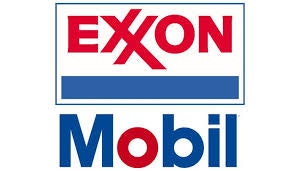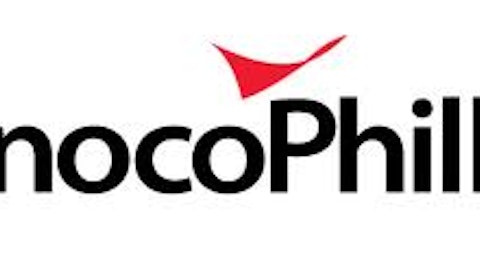The economy in the United States continues its steady, albeit painfully slow, recovery from the crushing effects of the Great Depression. One area of the economy that is well into its own recovery is the price of oil. Due to a confluence of factors, including the recovering global economy and a combination of low interest rates and continued stimulus from the Federal Reserve, oil is now only a few dollars away from the $100 per barrel mark. Prices at the pump have eclipsed the psychologically-important $4 per gallon level in many cities across the United States. If you’re frustrated from shelling out more and more of your hard-earned wages at the gas pump, here’s your chance for payback.

Exxon Mobil Corporation (NYSE:XOM) is the largest publicly traded stock in the world, with a market capitalization that currently sits at over $400 billion. The stock is the gold standard for the merits of slow and steady investing.
Earnings per share increased 15% to a record $9.70 per share, and the company’s financial position is fantastic. The balance sheet is an absolute fortress, holding a long-term debt to equity ratio of only 5%. In addition, the company is extremely friendly to its shareholders by providing generous share repurchases and dividend increases. Gross share purchases for 2012 were $21.1 billion, and in 2012 Exxon Mobil Corporation (NYSE:XOM) raised its dividend for the 30th consecutive year. The current payout is a solid 2.5% yield at current prices, and the stock trades for a trailing price-to-earnings ratio of less than 10.
Chevron Corporation (NYSE:CVX) is a close cousin of Exxon’s, although it had less success in 2012. Chevron’s full-year 2012 earnings were $13.32 per diluted share, down from $13.44 per share in 2011. To the company’s credit, Chevron’s proven reserves place the company in a great position. Chevron added approximately 1.07 billion barrels of net oil-equivalent proved reserves in 2012, which equate to 112 percent of net oil-equivalent production for the year.
Like Exxon, Chevron Corporation (NYSE:CVX) is extremely well capitalized. At year end, balances of cash, cash equivalents, time deposits, and marketable securities totaled $21.9 billion, an increase of $1.8 billion from the end of 2011. Meanwhile, total debt stands at only $12.2 billion.
ConocoPhillips (NYSE:COP) is in a period of transition following the spin-off of its downstream business. Full-year 2012 adjusted earnings were $6.7 billion, or $5.37 per share, compared with full-year 2011 adjusted earnings of $8.0 billion, or $5.75 per share. Along with its financial announcement, Conoco revealed its year-end proven reserves totaled 8.6 billion barrels of oil equivalent, giving the company a total reserve replacement ratio of 142 percent.
Conoco is a cash cow and uses that cash flow generation to handsomely reward its shareholders. ConocoPhillips generated $14.7 billion in cash from operations last year and returned more than $8 billion to shareholders in the form of dividends and buybacks. At recent prices, the stock is the highest yielding of the three, with a dividend yield exceeding 4.5% at recent prices.
The one-two punch of capital gains and fat dividends
If you’re frustrated by rising gas prices, you’re certainly not alone. While there’s not much the average person can do to lower prices they pay at the pump, here’s the way to fight back. These three Western oil majors have fantastic balance sheets, solid growth in revenue and profit, and generous shareholder policies. These stocks will help insulate you from the continued rise in oil prices with dividend yields that beat the yield on the broader market. You should expect profits from each of these stocks to keep pumping higher, along with global demand for oil. Don’t let a higher gas bill get you down: get even by investing in these fantastic stocks.
The article As Oil Prices Rise, Profit With These Stocks originally appeared on Fool.com.
Copyright © 1995 – 2013 The Motley Fool, LLC. All rights reserved. The Motley Fool has a disclosure policy.




